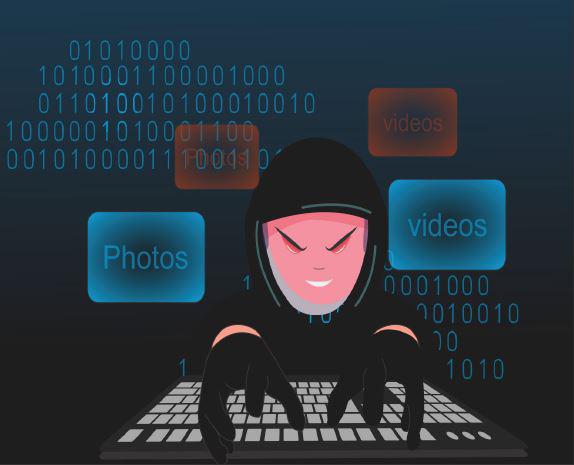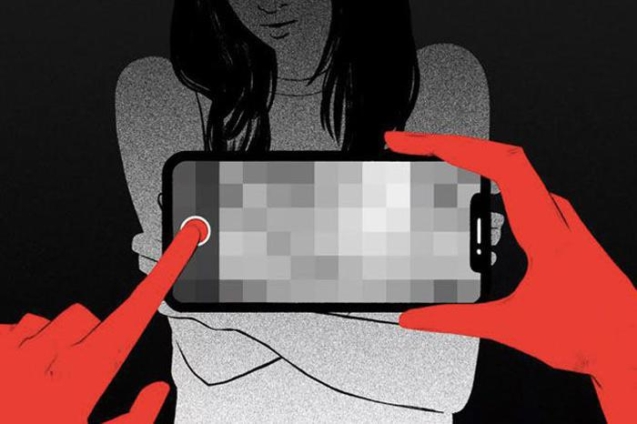On April 3rd, 2024, the harsh reality of revenge porn once again made headlines when a female Ghanaian broadcaster became the centre of a social media scandal. A video featuring the broadcaster in an intimate situation with a wealthy businessman was leaked online, sparking widespread controversy and debate. This incident, which the broadcaster later confirmed was from five years prior, led to public scrutiny, victim-blaming, and threats of professional consequences. This situation serves as a stark reminder of the ongoing challenges women face in the digital age, where private moments can be weaponised to cause public humiliation and professional damage.
Adding to this narrative is the story of a well-known female Nigerian musician who faced a similar ordeal. The musician revealed being blackmailed over a sex tape that was accidentally posted on Snapchat by a partner, only to be quickly downloaded by a stalker. Despite the immense emotional turmoil and fear of public reaction, the musician refused to pay the blackmailer, stating that they would not allow anyone to profit from their private life.
These incidents highlight a harmful form of gender-based violence that has emerged in today's digital world: revenge porn. Society must see it for what it really is—not just an unfortunate side effect of technology, but a purposeful attack on individuals’ independence and dignity. According to researcher Burris Aubrey, revenge porn is the term used to describe an intimate image or video that is initially shared within the context of a private relationship but is later publicly disclosed, usually on the Internet, without the consent of the individual featured in the explicit graphic. However, the term "revenge porn" is often misleading. It implies that these acts are always motivated by revenge and that the content is pornographic, which is not always the case. Additionally, the term "revenge porn" can inadvertently blame the victim, suggesting that they are responsible for the existence of the images and for provoking the perpetrator, while also trivializing the severity of the violation.

According to research done by Addadzi-Koom on revenge pornography as a form of sexual and gender-based violence in Ghana, women are disproportionately victimised by revenge porn. There are at least three revenge porn posts on social media every day, a majority of the victims being women and girls. This is no coincidence but a reflection of deeply ingrained societal attitudes that seek to control and shame women for their sexuality. When explicit images are shared without consent, it is not just a violation of privacy but also an assertion of power, a digital extension of age-old misogyny.
Revenge porn is especially harmful because it uses trust as a weapon. Once shared in confidence, intimate moments become tools of humiliation and control. And society's response? Usually, it is to blame the victim. "Why did she take those photos?" people ask, rather than "Why did he betray her trust so terribly?".
This victim-blaming mentality is probably the most damaging aspect of the revenge porn epidemic. It silences victims, preventing them from seeking help and allowing perpetrators to get away with it. It is a stark reminder that in 2024, we still live in a world where women are held responsible for the actions of those who harm them.
The psychological toll on victims is many and they include depression, anxiety, low self-esteem, use of maladaptive coping mechanisms and suicidal thoughts among others. Careers are derailed, and relationships are shattered. Some victims have even taken their own lives. And yet, the Ghanaian legal systems often fail to grasp the severity of this crime. Many jurisdictions lack specific laws addressing revenge porn, leaving victims with only a handful of ways to seek justice.
It is high time we treated revenge porn with the seriousness it deserves. We need comprehensive laws that not only punish offenders but also give strong support to victims. Currently, the laws addressing revenge porn in Ghana are scattered and insufficient. The Cybersecurity Act, 2020 (Act 1038), under Section 67, criminalizes the non-consensual sharing of intimate images, making it a significant step towards addressing the issue. Additionally, Sections 62 and 63 provide protections against the indecent use and abuse of images of children.

However, these laws are not comprehensive enough. They do not cover all aspects of non-consensual pornography, such as cases where sexually explicit images are distributed for entertainment rather than harm or the issue of "morph porn" where images are digitally altered.
Furthermore, the Criminal Offences Act of 1960 (Act 29), addresses aspects of revenge porn under sections related to obscenity and indecency. Section 278 makes it a misdemeanour to engage in grossly indecent acts in public, and sections 280 and 281 criminalize the publication and distribution of obscene materials. However, these provisions are limited and often do not adequately capture the specific nature of revenge porn, especially where the intent is not directly linked to extortion or clear physical harm.
Neutral laws fail to protect everyone, particularly women who are disproportionately affected by revenge porn. Gender-specific laws are essential to address the unique ways in which women experience online harassment and abuse. The current legal framework does not provide sufficient support for victims or adequately address the psychological harm caused by such acts. Comprehensive gendered legislation is needed to ensure that the law recognizes the severe impact of revenge porn on victims and provides appropriate remedies and support systems to aid in their recovery and protection.
However, laws alone are not enough. We need a cultural shift. Schools must teach about digital citizenship and consent. The media must stop sensationalizing these cases and start treating them as the serious crimes they are. And as individuals, we must challenge the attitudes that allow revenge porn to flourish.
Revenge porn is not about sex or regrettable decisions but rather about power, control, and the persistent belief that women's bodies are somehow public property. It is time we named it for what it is: a form of gender-based violence that has no place in our society.
While women are the primary victims, it is important to acknowledge that men can also be affected by revenge porn. However, the societal response and the impact on men can be different. Men are less likely to face the same level of public shaming and career repercussions as women, highlighting the gendered nature of this crime. Therefore, while neutral laws aim to protect all, they often fail to address these nuances.
The fight against revenge porn is a battle for privacy, dignity, and bodily autonomy for all individuals, but especially for women who bear the brunt of this digital violence. It is a struggle we must win. Our digital world should offer opportunity and connection, not serve as another way to oppress women.
Latest Stories
-
Black Stars could miss key players for 2025 Unity Cup – Dr Randy Abbey
4 hours -
Pyramids grab late equaliser in African Champions League final
5 hours -
EU calls for ‘respect’ after Trump threatens 50% tariffs
5 hours -
Ronaldo ‘could play’ in Club World Cup – Infantino
5 hours -
Amorim tells Garnacho he can leave Man Utd
5 hours -
Djokovic makes more history with 100th singles title
5 hours -
Ten Hag set to replace Alonso as Leverkusen manager
5 hours -
Salis’ Sunderland secure Premier League return
5 hours -
Assin Fosu chiefs and elders bless TGMA Unsung Artiste of The Year, Yaw Darling
6 hours -
Middle-aged, 2 children trapped in their home after a fig tree sealed their frontage doors
7 hours -
Roots of resistance: The climate cost of cutting Accra’s trees
7 hours -
Reimagining Informality: Harnessing the Urban potential of street vending in Ghana
7 hours -
Former Yendi MP Dr Farouk Mahama donates towards funeral of late Mion chief
8 hours -
Ghana Gas board pledges accountability and staff support during operational tour
8 hours -
Burkina Faso’s uprising is a rebirth, not rebellion – Ras Mubarak
8 hours

